|
A way too early contender for action film of the year - a propulsive, non-stop exhilarating experience with a panoply of memorable set pieces. Pure spectacle cinema and tighter than what I'm accustomed to out of Indian cinema. Tethered to nationalist ideas of commonality one would expect, but at least this villian, who albeit is characterized and scripted as psychotic, questions the foundational ideas of nationalism. Hate to be this guy, but can those who won't shut up about RRR (rightfully so) please share the wealth a bit, and try and break free of Western hegemonic ideas of what blockbuster cinema can be? Imagine thinking Marvel movies deliver the most exhilarating sequences modern cinema has to offer. In all honestly, I feel sorry for people with such a narrow, uninformed mindset. This film is just so fucking cool and I'm now a little bummed I didn't see it in IMAX. Also, not to be horny on main but Deepika Padukone - wow.
0 Comments
A dream-like ode to the silent film era full of surrealist imagery and enigmatic mystery that wonderfully coalesces into a cathartic experience of postmodern gravitas. Striking black-and-white imagery, a formal style pulled right from the silent era, and surrealism combine to consistently evoke an otherworldly quality as To Sleep So As To Dream delivers a labyrinthic quest that eschews material reality while embracing the logic of the metaphysical realm. Should be sought out by fans of beguiling films like Under the Silver Lake or even David Lynch's haunting reflections on objectivity vs. subjectivity, but while Lynch's films often invoke nightmarish visions of this dichotomy, To Sleep So As To dream operates along a more light, comedic touch. There is a sense of danger and mystery yet ultimately a sense of catharsis is reached; a finality in which one's spiritual self finds closure and healing that often is simply not granted in much of Lynch's work. Perhaps the comparison to Lynch is a tad reductive here but I'd just be extremely curious whether 1) Lynch has seen this film and 2) what he ultimately would think of it.
Quite messy narratively, The Wandering Earth 2 feels particularly disjointed early on in its runtime as it attempts to balance its impressive scope and scale with its human core. Somehow, it ultimately all comes together, with The Wandering Earth 2 exemplifying what I want out of spectacle filmmaking - bravado and heart. Apes from everything from Armageddon to Sunshine, traversing familiar tropes of disaster films - unity, hope, and sacrifice - to deliver a constant sense of wonderment while never undercutting its humanistic core. Built around such an absurdly entertaining conception, The Wandering Earth 2 doesn't squander its potential, delivering quite a few thrilling set-pieces that are impressively chaotic and full of bombast yet never incoherently directed. I haven't seen the first film since it came out, but if memory serves, this is almost more an alteration of the concept than a sequel that lives up to what one would hope for from a big sci-fi/fantasy blockbuster that is nearly 3 hours long.
More Sonny Chiba's Ocean's Eleven than Street Fighter or anything resembling the first film's more serious disposition, The Executioner II is structured around comedy, and it's effective, leaning into the odd couple nature of this crackpot team and fully embracing the humorous undertones of the first film. Those seeking a wealth of action are bound to be disappointed but I found the interplay between these three characters endearing, with some pretty significant comedic bits - the superglue gag! More comedic-focused than its predecessor but still extremely horny, The Executioner II: Karate Inferno saves up its graphic violence for a rather impressive finale that features one of the greatest neck-breaking sequences in cinema history that fully embraces the lurid imagery one would come to expect from Teruo Ishii
Gutteral action, lurid imagery, and extreme horniness permeate The Executioners. The propulsive nature of the narrative only enunciates these traits, delivering quite the alluring action film in which brutality and corporeal perversions are given equal footing by the camera's gaze. The fight choreography and general staging aren't so much based on fluidity or grace but blunt force trauma and The impact on the flesh is felt throughout The Executioners which delivers a panoply of memorable carnage. I'm not sure if this is the right descriptor, but there is an irreverence embedded into the tone of this film - the music cues alone are suggestive - embodying the vagabond ragtag group of protagonists who live outside of the system despite their mission being rooted in protecting the social order. It's quite a quiet subversive treat, almost if to suggest hiding under this highly conservative culture is a bounty of repressed desires. Yes, I had a lot of fun. Most creative (and violent) face painting scene ever committed to celluloid? Definitely in the cinematic hall of fame in regards to fake looking 'dummy falling off-a-cliff" moments. This is my The Expendables.
I was watching this thinking to myself that our main protagonist, the director, really needs to check out Hisayasu Satō or Kōji Wakamatsu for inspiration in making his CATIII film something more than lurid gratification. Then, all of a sudden, a fellow crew member refers the director at the center of our story to pinku cinema as a means of inspiration, a way to hone one's craft as an artist while obfuscating the genre's simple commercial intentions. Anyway, this is a fantastic film full of vitality and heart. It's so inventive, formally audacious, and surprisingly heartfelt, delivering what amounts to a beautiful ode to the communal nature of the creative process. Art vs commerce is a major theme throughout Viva Erotica but it is also merely a jumping-off point. Viva Erotica, at its core, is an affront to artistic orthodoxy, a rejection of this dichotomous ideal that persists between high and low art. Viva Erotica fundamentally recognizes how much economic forces alone often sculpt this fabricated binary, working in conjunction with societal expectations/normative social values that together construct, define, and reinforce this false binary. I think what Viva Erotica manages over its runtime is a deep appreciation for the mutual action of all artists, who together create through collaboration, doing so in a way that never feels contrived but authentically rendered. The struggling artist, confronted by the harsh realities of creating art in an increasingly commercial world that only values material commodities can forge a path through collaboration and a shared artistic vision - Viva Erotica is, at it's core, a deeply optimistic film about the power we can derive from acts of creation. An invigorating experience and frankly, for my money, one of the best films about filmmaking ever made.
Abject brutalism, horniness, oddly goofy humor, and kinetic cinematic grammar that pronounces Tsui Hark's influence? Yeah, this is fun. Not a film I would necessarily expect from Ringo Lam, but his take on the wuxia period piece is a sight to behold and certainly retains his patented penchant for barbarism despite this film's more goofy tonal vibrations. Lots of strong action set pieces and a stellar setting gives this sucker some juice. An obvious double-feature with Burning Paradise would be Hark's The Blade, but the latter is simply on another level in terms of aesthetics and atmosphere, but the former's gleeful violence and extravagant penchant for gore remain a sight to behold. Not a horror film but shares some sensibilities; I could see horror hounds eating this up.
Perhaps Sōmai's most narratively discombobulated film but this is an absolute stunner with Sōmai's formal precision and rapturously effective cinematic grammar managing to evoke a continuously entrancing experience of profound sadness and incisive commentary related to self, interiority, and societal impediments. Operating between modes of magical realism and social realism, Lost Chapter of Snow: Passion is a challenging and provocative experience that I found hard to pin down. It's so emotive and consistently enthralling in the way it relays feelings of alienation and abandonment, detailing the intrinsic confusion related to expressing oneself outwardly - feelings themselves ultimately being more illusive than we often acknowledge in contemporary life, our interiority a constant navigation in itself. It could be argued the film is unfocused but I hardly cared. Sōmai is such an exquisite artist when it comes to aesthetics but his acute understanding of youth continues to stand out to me. For Sōmai, youth being confronted with the societal order and ways of the world isn't merely a rite of passage, it is a shock to the system, an injustice in a sense in which the formulation of identity via self-discovery is a constant negotiation between our more pure, internal impulses and the external realities of contemporary life. Adolescence struggle is given existential gravitas, it's a balancing act of egoism intrinsic to self and the need for altruism, a necessity of living a meaningful social life. What Lost Chapter of Snow: Passion keenly understands is how egoism and altruism aren't diametrically opposed, they are commingled ideals, all in the service of forming a strong ontology of self-informed by epistemic realities. Balance feels like a major theme here, and while I'd be lying if I said I fully understood everything going on in this film, I found this to be an entrancing work full of beauty, pain, and wonderment that is full of maturity, incisive commentary related to both communal ills (Japanese familial orthodoxy) as well as more individualistic investigations of self.
Transgressive terror, the abstraction and infinity of darkness wielded to construct a haunting vision rooted in primitive and pure notions of fear. Rigorous formal arrangements reminiscent of Haneke evoke a sense of tension and unease. The opaqueness of darkness and the obliqueness of the spatiality is precisely rendered, tapping into a primordial-based horror in which the viewer routinely is forced to gaze into the abyss. A challenging experience at first, some will find Skinamarink too opaque and tepid, but for those willing to immerse themselves this film will be rewarded. Wonderfully rendered and deeply unsettling, Skinamarink is not interested in inducing fear through plotting, or character, it instead distills fear to its most primal impulse - fear of the unknown.
As merely a formal object, Athena is an impressive achievement. A sensorial exercise imbued with unwavering ferocity, its grand artifice symphonic in elucidating collective anguish and action. Unfortunately, beyond these achievements that I must admit kept me enthralled for at least most of the film's runtime, Athena as a film is ultimately rubbish. It's antithetical to progress and arguably dangerous in the way it obfuscates state violence via a lazy narrative device. For all its formal vigor, precision, and expressivity, this film is at best, naïve, at worst cowardly. It's utilitarian only, using the framework of a social-political issue to say absolutely nothing, the text itself being straight-up state propaganda where bad actors are merely scapegoats to avoid the larger systemic nature of state violence.
|
AuthorLove of all things cinema brought me here. Archives
June 2023
|
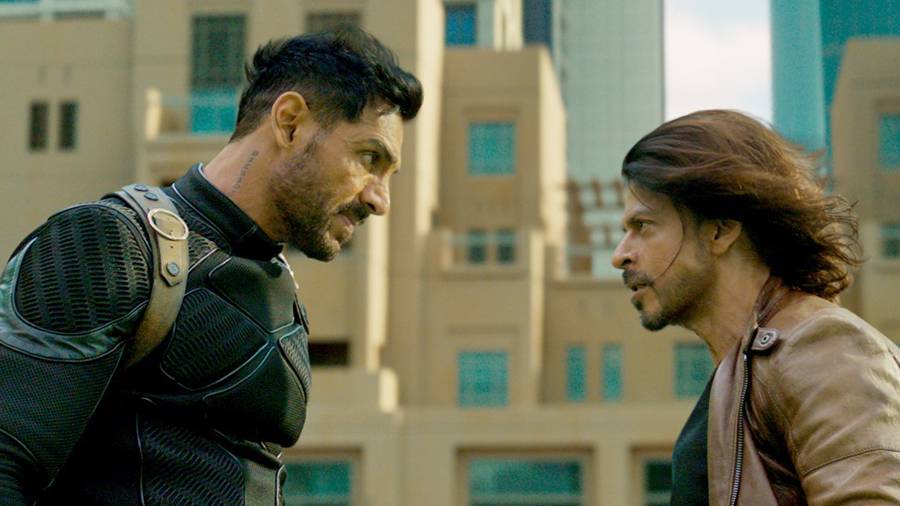
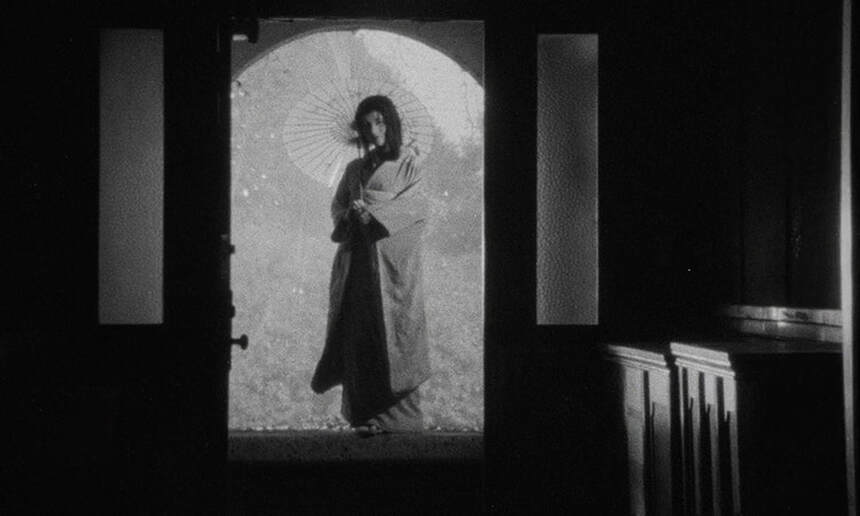
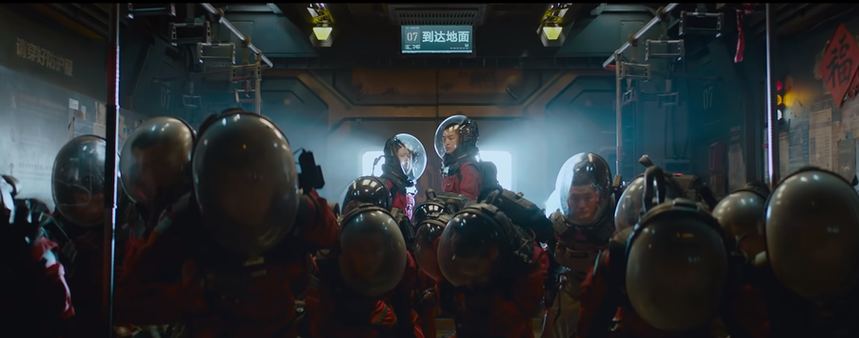
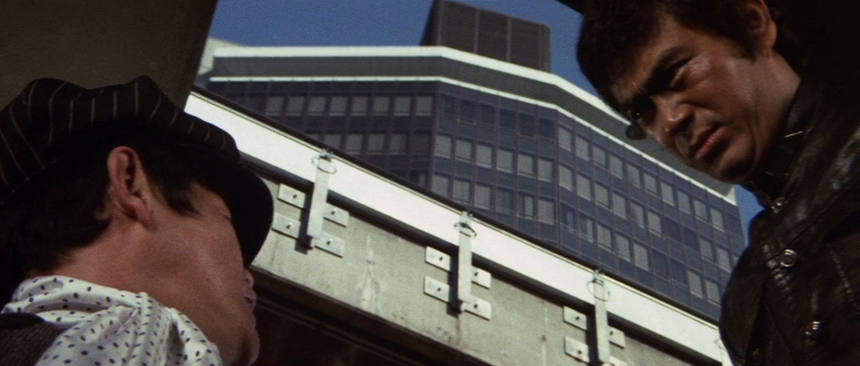
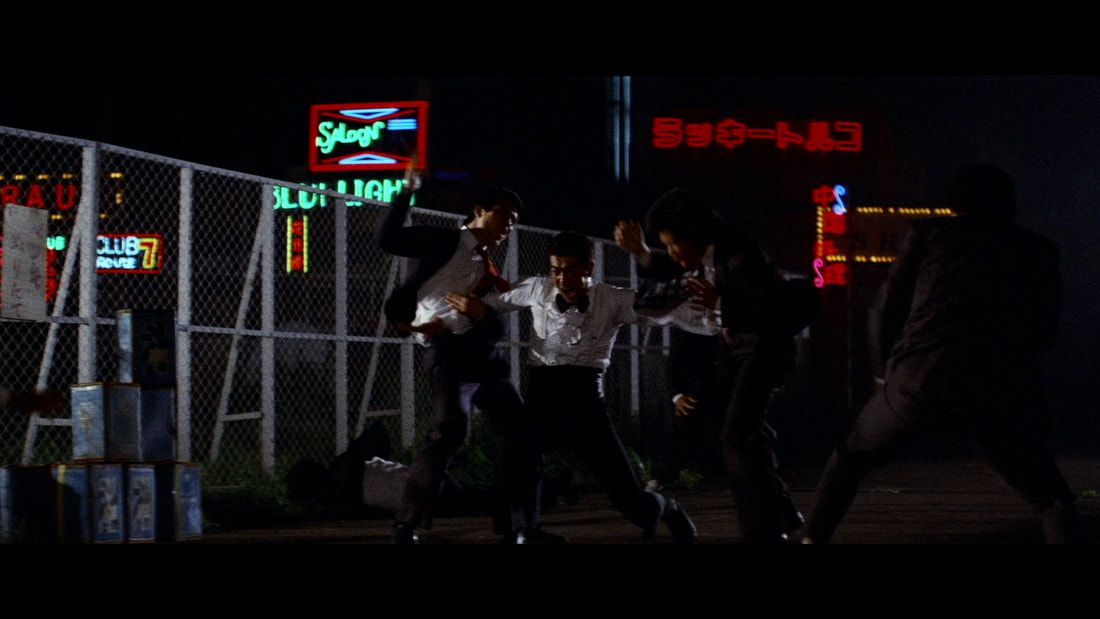

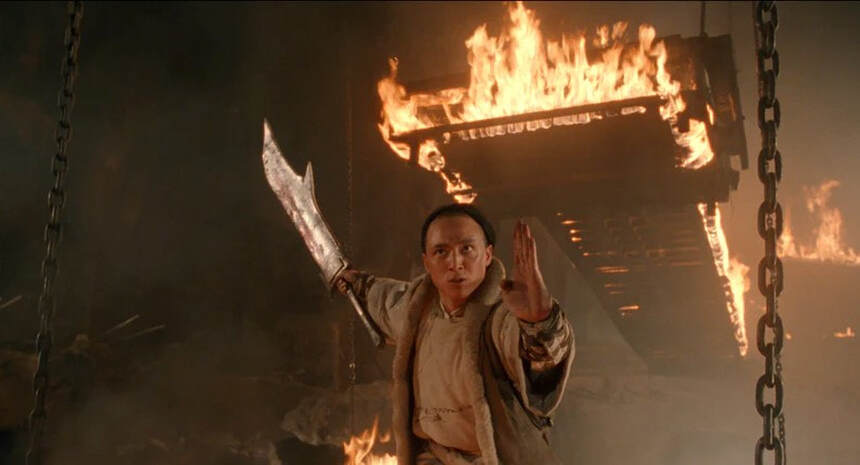
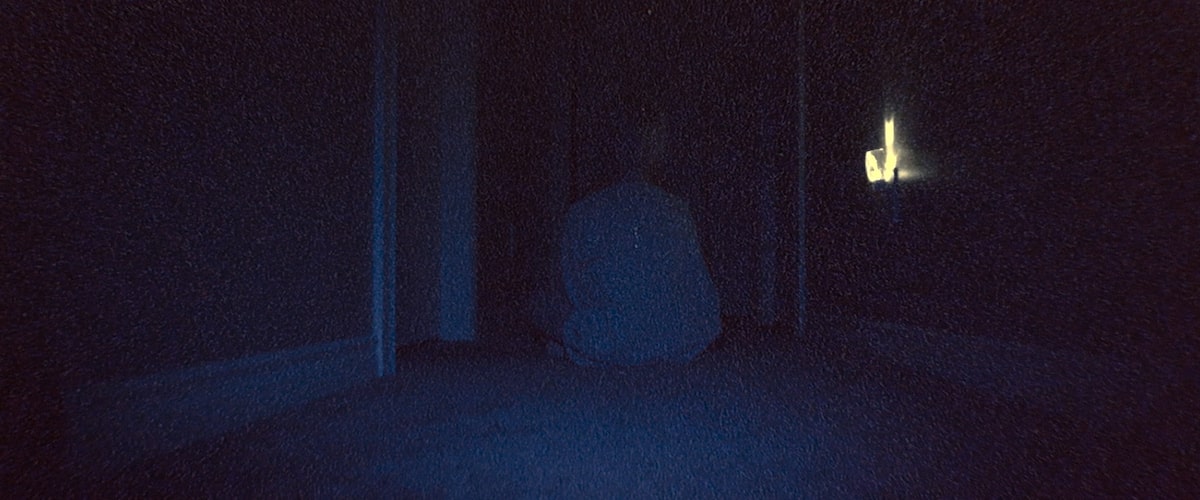
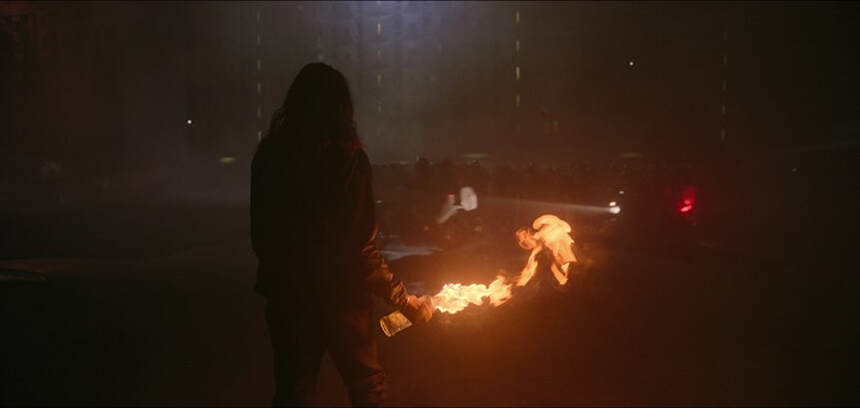
 RSS Feed
RSS Feed
